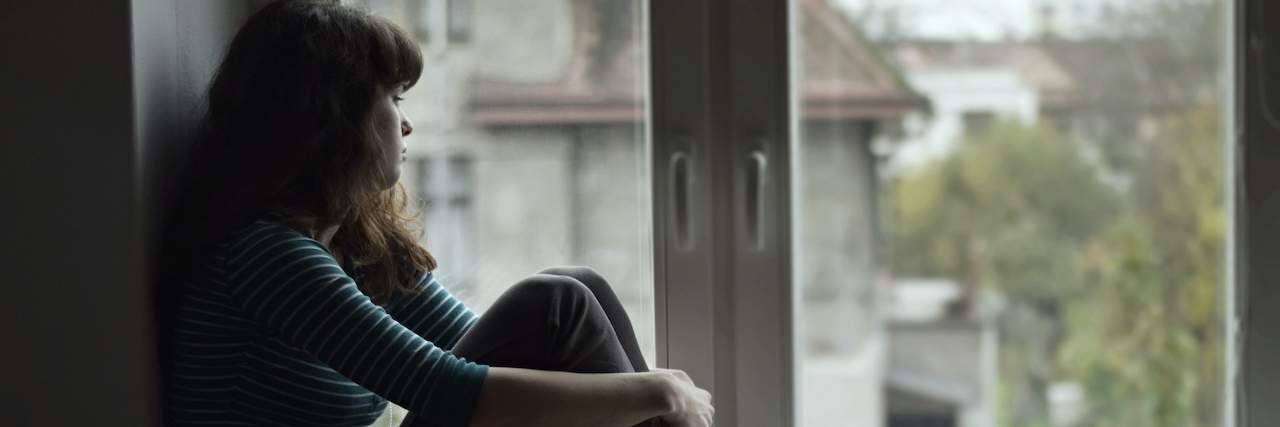Living with a chronic illness during a pandemic definitely has its challenges. Having multiple conditions with multiple organ systems involved I’ve always seen numerous doctors and frequently go through testing and blood work. I have a neurologist, two pulmonologists, a rheumatologist, a urologist, an orthopedist, a couple of ophthalmologists, a gastroenterologist and then there are my routine visits with PCP, gynecology and mammograms. My disease can’t be put on hold, I can’t make my symptoms stop or not get any worse because there is a global pandemic, but at times I have felt my care has been put on hold.
There is only so much you can get out of a virtual visit and although I’ve had some in person visits too, there are other vital tests and things I should have done that have been postponed. I put off a sleep study and echocardiogram and insurance won’t cover CPAP equipment until I have the study, so my CPAP is currently under my bed instead of helping me breath while I sleep. I qualify for a research study that may be able to help with my mitochondrial disorder, but due to the pandemic this has been put on hold and delayed for a second time. It’s frustrating to know there are things that could be helping me right now, but I don’t have access to them.
I once had a doctor over a virtual visit say that some of her patients have been saying their lives hadn’t changed much with quarantining. It is true that I spent more time at home than healthy people before this, but my life has still been disrupted in many ways. Because I often feel so unwell I am definitely a bit of a homebody, but I did still get out more often than I do now.
I have taken this pandemic seriously from the beginning, and it’s so frustrating to see others not doing the same. I live in fear of getting the virus. I am not starting out healthy so I don’t know how my body would react if I got COVID-19, and I hope I never have to find out. Many healthy people get really sick or even die, so I don’t want to know what would happen to me. I have dysautonomia, Ehlers-Danlos syndrome, a mitochondrial disorder and small fiber neuropathy, among other things.
Earlier on in the pandemic, in the spring, the laser iridotomy procedure I was supposed to have due to narrow angle glaucoma was cancelled. I was hoping this delay wouldn’t cause irreversible vision loss (it was a stressful summer worrying about this), but thankfully I did finally have it done in the fall which included several in person appointments. I hate going into medical establishments these days. Some take better precautions than others. I’ve had to wait in my car and then go directly to a room when they are ready to see me, minimizing contact. I’ve also been in crowded waiting rooms. It’s unsettling when someone is coughing and the receptionist reminds them to stay behind the plexiglass, I was also on the other side of that plexiglass wishing there was more to protect me. I still go home and immediately shower after any appointment.
Over the summer it was suggested that I may have an autoimmune condition. I probably would have been worked up for this by now, but due to the pandemic I keep being told, what’s another few months. I’d like to answer my quality of life in case this would require a treatment that could help me feel better or keep other things from progressing for the worse. Instead I sit home with extra free time to worry about these things. It’s no fun to have a chronic illness during regular times, but it is so much worse during a pandemic.
I have had scary medical issues arise recently and have tried to get through them with phone calls and Zoom appointments with my doctors. These have mostly been GI and neurological. There are times my vitals have been way off, but even though I know I probably should have been seen, my fear of exposing myself to the virus has kept me home to try and deal with them on my own. Again there is only so much you can do virtually.
It’s disheartening when you see the news with hospitals filling up. Some say they may have to make decisions on who to treat for the best outcomes. I want to live and wonder how much my life matters. I look so much worse on paper, but that’s what happens when you have an invisible illness. I have a pre-existing condition, but am also a person who plans on living for a long time.
Many people who have had COVID are becoming long haulers when their symptoms won’t go away and develop POTS and dysautonomia. Selfishly I’m worried there aren’t enough of these specialized doctors to see me and all these new patients. I’ve been dealing with these issues for over 15 years, but thankfully the NIH and other research institutions are finally paying attention to them, so I hope that will benefit me in some way. I just wish it didn’t take so long for them to fund research for these conditions that many of us have been struggling with for a long time.
Another thing is many of my symptoms could be considered those of COVID. I never thought anything of them before but now they make me paranoid. I frequently get sore throats and low grade fevers. I often get winded and as the winter air got dryer I developed a dry cough. I have been tested for the virus twice just to be sure.
Living with a chronic illness is hard enough without a pandemic putting a strain on healthcare facilities, so I hope those of us with chronic illnesses don’t fall through the cracks. I know these are unchartered territories and I just hope the delays in medical care have not resulted in any irreversible damage. I’m thankful for all the healthcare workers who definitely didn’t think they’d encounter anything like this when they entered into their professions. It’s a scary world out there and while I keep to myself in my little bubble and try to stay as healthy as possible, I’m thankful for all the frontline workers who do go out there and put themselves at risk every day.
Getty image by Tunatura


